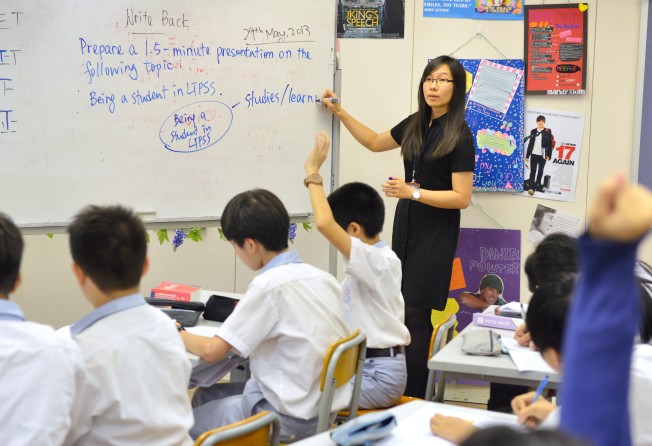Hong Kong's policy on language of instruction must put students first

If a government policy is not properly followed by those it intends to regulate, common sense will say the policy is either flawed or there are enforcement issues. In any case, officials are expected to review the situation and come up with better solutions. Doing nothing is not an option. Sadly, this appears to be the case with the medium of instruction in secondary schools. Under the so-called fine-tuning measures introduced in 2010, classes cannot be taught in English unless 85 per cent of a school's students belong to the top 40 per cent of their age group academically. The policy enables more classes to be taught in English and helps dilute any negative perceptions there may be about the medium of instruction at schools.
Five years have passed and the result of this policy leaves a lot to be desired. The latest figures show that about a third of the 100 schools that are allowed to teach in English are actually failing to meet the threshold. But instead of switching back to Chinese for the next academic year as originally required, the government has decided to let them continue using English until the next review in 2022. Schools should be allowed a stable teaching environment, education minister Eddie Ng Hak-kim said.
The government is probably more concerned about complaints from parents and students if dozens of schools are suddenly forbidden to teach in English. Given there is still a strong preference for English-medium schools, the remaining ones would be even more sought after. But the delaying tactic is indeed a political time bomb for the future administration. A long-term strategy is called for.
It does not take an expert to tell that academic development will be hampered if students are forced to learn in a language they are not good at. That is why the government set a high threshold to ensure that only the capable ones would learn in English. The steady-as-it-goes approach adopted by the government is certainly welcomed by parents and schools. But it is also deferring the problems.
A fall in enrolment is said to be the reason why dozens of schools do not have enough top students to meet the requirement. If that is the case, the threshold should be reviewed, otherwise schools will be forced to breach the policy.
The government's reluctance to deal with the problem means schools are left with the responsibility to make the final decision. Students are not guinea pigs. If some schools are found to be incapable of teaching in English, they must give up lest the students continue to suffer.